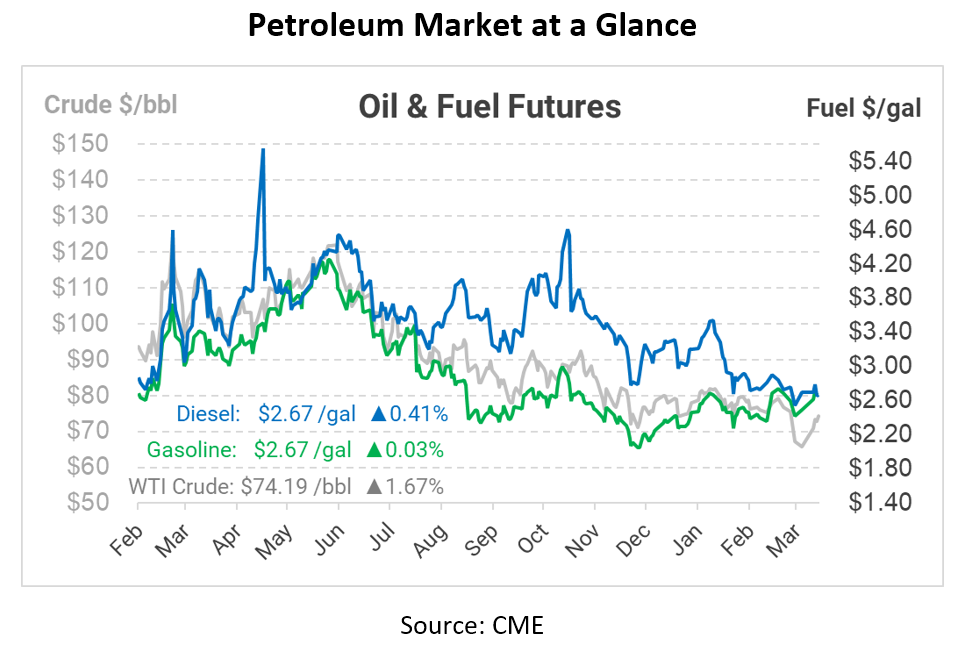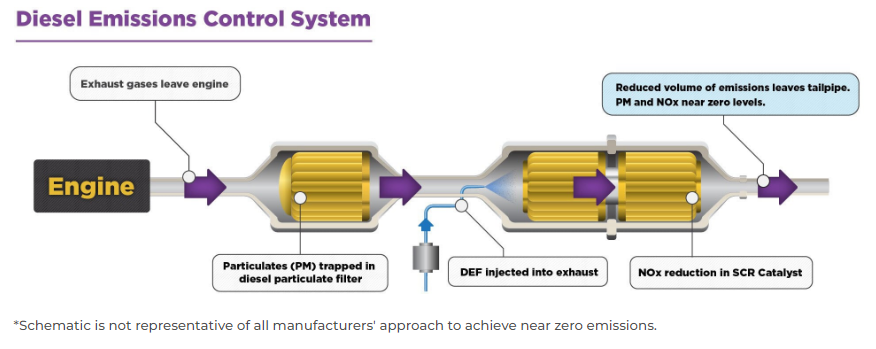
SCR Engines Clean Up Diesel Emissions for a Greener Drive
Picture this: you’re driving down the highway, enjoying the scenic views, and taking in the fresh air. But have you ever wondered if the air you’re breathing might not be as clean as you think? Just a few years ago, diesel engines, which power many vehicles on the road, were significant contributors to harmful nitrogen oxide (NOx) emissions into the environment. But fear not: Selective Catalytic Reduction Engines (SCR Engine) were created to help save the day!
So, what is an SCR engine? SCR Engine is a technology system that reduces tailpipe emissions of nitrogen oxides (NOx) in the newer generation of diesel-powered vehicles and equipment. It utilizes a unique combination of diesel particulate filters (DPF), SCR technology, and a urea-based solution — aka diesel exhaust fluid (DEF) — to reduce emissions. The DEF is stored in a separate tank in the vehicle and is injected into the exhaust system, where it reacts with the NOx emissions, converting them into harmless nitrogen and water vapor. Although some see the SCR system as just another engine component that can break down, it serves a very important function.
By using SCR technology, NOx emissions can be reduced by up to 90%, making these engines more environmentally friendly and compliant with emissions regulations.
Source: Diesel Technology Forum
Emissions Regulations
The automotive industry has come a long way since the Clean Air Act was introduced back in 1970. Though SCR engines had been used in other countries, they hit the US market by storm in 2011, revolutionizing emission controls for US heavy-duty diesel trucks, including buses, trucks, and (later) construction equipment. As a cost-effective and fuel-efficient solution, it became indispensable in helping fleet owners and operators comply with the EPA emissions standards, which demand reductions in particulate matter (PM) and nitrogen oxides (NOx).
What’s DEF?
Diesel Exhaust Fluid is a urea-based solution used in SCR systems to reduce harmful nitrogen oxide (NOx) emissions from diesel engines. DEF is composed of 32.5% urea and 67.5% deionized water.
When DEF is injected into the exhaust stream, it vaporizes and decomposes to form ammonia, which reacts with NOx over a catalyst in the SCR system. The reaction converts NOx into nitrogen and water, which are harmless and can be safely released into the atmosphere.
DEF is essential to reducing emissions, as it is the most efficient means of complying with EPA requirements. Suppose you own or operate a vehicle with a diesel engine. In that case, it’s important to understand how DEF works so that you can make sure your vehicle is operating properly and free of harmful emissions at all times. Mansfield has DEF experts ready to consult with you about your specific needs. Our team has been at the forefront of DEF supply and logistics since its inception over a decade ago. Contact us today to ensure your fleet is using a high-quality product with reliable supply capabilities.
This article is part of Daily Market News & Insights
Tagged:
MARKET CONDITION REPORT - DISCLAIMER
The information contained herein is derived from sources believed to be reliable; however, this information is not guaranteed as to its accuracy or completeness. Furthermore, no responsibility is assumed for use of this material and no express or implied warranties or guarantees are made. This material and any view or comment expressed herein are provided for informational purposes only and should not be construed in any way as an inducement or recommendation to buy or sell products, commodity futures or options contracts.







